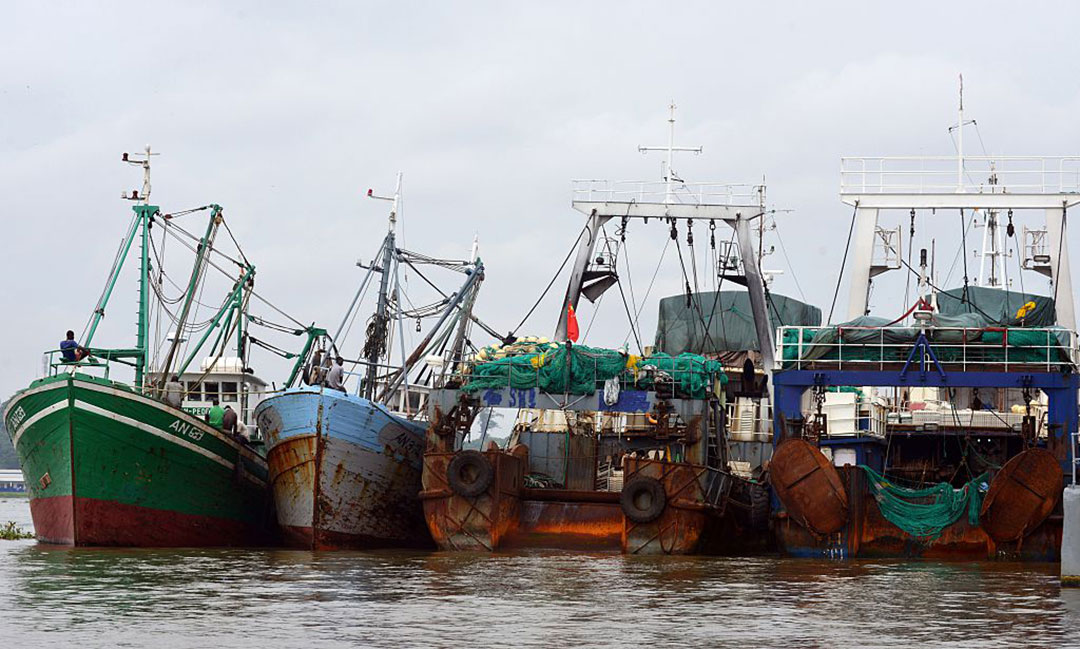Namibia’s COVID-19 Surge Forces Unprecedented Belt Tightening
ADF STAFF
Desperate to counter a spike in COVID-19 infections and saddled with record debt, Namibia has taken aggressive actions to fund its pandemic response.
In May, President Hage Geingob trimmed the size of his Cabinet from 26 to 19 and cut ministers’ perks, including new vehicles. There even was a cap on monthly fuel, according to his spokesman Alfredo Hengari.
In June, the president said in his state of the nation address that the country could no longer support Air Namibia. He recommended liquidating the national carrier.
In August, Geingob urged corporations and individuals not to place advertisements wishing him a happy 79th birthday and to instead donate the money to the government to fight COVID-19, Hengari said in a statement.
The latest attempt to raise money — an unprecedented public auction of fishing rights — has met with the most public disapproval. An editorial in The Namibian newspaper screamed, “What a mockery.”
“Government is in need of financial resources on an emergency basis with a view to mitigate the effects of COVID-19,” said Albert Kawana, minister of Fisheries and Marine Resources, according to Reuters. “We do not produce medicines in Namibia, nor do we manufacture medical equipment. … In order to obtain these items, we have to buy them with foreign currency.”
Hence the sale of 60% of the country’s annual quota of horse mackerel, hake and monkfish to the highest bidder. Namibia relies on fishing export revenue for $783 million a year, the third-biggest share of its gross domestic product (GDP).
Aside from concerns over losing Namibian jobs, another factor contributing to public discomfort is that 60% of the quota up for auction usually is reserved for Fishcor, the state-owned fishing corporation that has been plagued by bribery, money laundering and corruption charges.
Seaflower Pelagic Processing, a Fishcor subsidiary that declared it was not associated with the scandal, recently sued Fishcor and the ministry to prevent the public auction. A ruling was expected in late August.
Regardless of the news in the fishing industry, the two greatest issues concerning Namibia continue to be the spread of COVID-19 and the inability to thwart it because of crippling debt.
With an average of eight cases per 100,000 people a day, Namibia now has the highest rate of spread among African countries, Health Minister Kalumbi Shangula said in a statement.
According to the Africa Centres for Disease Control and Prevention’s August 25 statistics, the country had 6,431 cases, 57 deaths and 53,387 tests in a population of more than 2.5 million.
The government has imposed strict measures, including a dusk-to-dawn curfew, checkpoints and travel permits. The country closed its schools in August for the second time in four months.
“Our experience has taught us that a full lockdown of social and economic activities comes at an equally high premium and cannot be sustained over a prolonged period,” Geingob said in a televised speech about the virus. “Just as the rate of infection is accelerating, we continue to invest in our ability to respond and adapt our national response measures.”
Namibia, however, is running out of sources for these investments.
With revenue decreasing significantly and the economy projected to contract by 6.6% this year, Finance Minister Iipumbu Shiimi announced on May 31 that Namibia’s debt would reach 68.7% of GDP.
The influence of and indebtedness to China loom over the present confluence of crises.
Geingob, who refers to China as “our best friend,” has agreed to numerous infrastructure projects as part of China’s sprawling, controversial Belt and Road Initiative. But as his administration services more than $134 million in loans, more extreme measures such as auctioning natural resources have become necessary.
“It is not acceptable,” Geingob said in his address. “We did not expect the economic downturn, the drought and COVID-19.
“Now we have to divert funds. That debt is not sustainable. I admit the debt is not manageable. We must do something to bring it down.”


Comments are closed.